N,N'-Dinitrosopiperazine
Modify Date: 2024-01-02 11:59:25
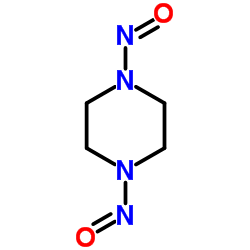
N,N'-Dinitrosopiperazine structure
|
Common Name | N,N'-Dinitrosopiperazine | ||
|---|---|---|---|---|
| CAS Number | 140-79-4 | Molecular Weight | 144.132 | |
| Density | 1.5±0.1 g/cm3 | Boiling Point | 406.1±38.0 °C at 760 mmHg | |
| Molecular Formula | C4H8N4O2 | Melting Point | N/A | |
| MSDS | N/A | Flash Point | 199.4±26.8 °C | |
Use of N,N'-DinitrosopiperazineN,N'-Dinitrosopiperazine (1,4-Dinitrosopiperazine; DNP) is a carcinogen with specificity for nasopharyngeal epithelium and facilitates NPC metastasis. N,N'-Dinitrosopiperazine regulates multiple signaling pathways through protein phosphorylation, including LYRIC at serine 568[1]. |
| Name | 1,4-Dinitrosopiperazine |
|---|---|
| Synonym | More Synonyms |
| Description | N,N'-Dinitrosopiperazine (1,4-Dinitrosopiperazine; DNP) is a carcinogen with specificity for nasopharyngeal epithelium and facilitates NPC metastasis. N,N'-Dinitrosopiperazine regulates multiple signaling pathways through protein phosphorylation, including LYRIC at serine 568[1]. |
|---|---|
| Related Catalog | |
| In Vitro | N,N'-Dinitrosopiperazine (0.5-100 μM; 48 hours) has no inhibitory effects on the labeled 6-10B cells, and LDH activity is not significantly altered by DNP treatment in the 0.5-8 μM concentration range. However, it is cytotoxic from the concentration 10 μM[1]. N,N'-Dinitrosopiperazine (2-8 μM; 24 hours) induces 6-10B cell invasion and motility in a dose-dependent manner. At 6 μM, when compares to the control group, DNP increases cell invasion at 421.7% and cell motility is increased by 328.2%[1]. N,N'-Dinitrosopiperazine (6 μM; 24 hours) increases the expression of phospho-LYRIC s568 and LYRIC expression in CNE1 cells[1]. Cell Viability Assay[1] Cell Line: The labeled 6-10B cells Concentration: 0.5, 1, 2, 4, 6, 8, 10, 20, 40, 80, or 100 μM Incubation Time: 48 hours Result: Had no inhibitory effects at the concentration 0-8 μM. Western Blot Analysis[1] Cell Line: The NPC cell line CNE1 Concentration: 6 μM Incubation Time: 24 hours Result: Increased phospho-LYRIC s568 and LYRIC expression. |
| In Vivo | N,N'-Dinitrosopiperazine (injected into the tail veins; 40 mg/kg; 30 days) inhibits cell motility and invasion, and facilitates NPC metastasis in vivo. From a IHC result, Phospho-LYRIC expression is higher in the metastatic tumors of DNP-treated mice than in those of the untreated control mice[1]. Animal Model: BABL/c nude mice injected with labeled 6-10B cell suspensions (1 × 104 cells) with or without DNP(40 mg/kg)[1] Dosage: 40 mg/kg Administration: Injected into the tail veins; 30 days Result: Induced LYRIC phosphorylation at serine 568 associated with NPC metastasis in vivo. |
| References |
| Density | 1.5±0.1 g/cm3 |
|---|---|
| Boiling Point | 406.1±38.0 °C at 760 mmHg |
| Molecular Formula | C4H8N4O2 |
| Molecular Weight | 144.132 |
| Flash Point | 199.4±26.8 °C |
| Exact Mass | 144.064728 |
| PSA | 65.34000 |
| LogP | -0.88 |
| Vapour Pressure | 0.0±0.9 mmHg at 25°C |
| Index of Refraction | 1.648 |
CHEMICAL IDENTIFICATION
HEALTH HAZARD DATAACUTE TOXICITY DATA
MUTATION DATA
|
| HS Code | 2933599090 |
|---|
| Precursor 8 | |
|---|---|
| DownStream 2 | |
| HS Code | 2933599090 |
|---|---|
| Summary | 2933599090. other compounds containing a pyrimidine ring (whether or not hydrogenated) or piperazine ring in the structure. VAT:17.0%. Tax rebate rate:13.0%. . MFN tariff:6.5%. General tariff:20.0% |
| EINECS 205-434-6 |
| NN'-Dinitrosopiperazine |
| Piperazine, 1,4-dinitroso- |
| 1,4-Dinitrosopiperazine |
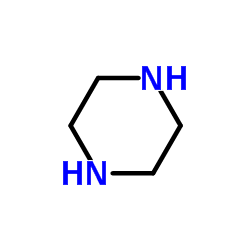 CAS#:110-85-0
CAS#:110-85-0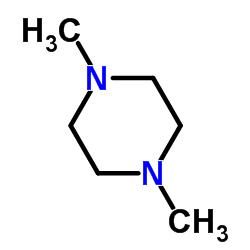 CAS#:106-58-1
CAS#:106-58-1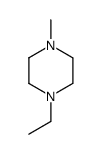 CAS#:49860-76-6
CAS#:49860-76-6 CAS#:16339-07-4
CAS#:16339-07-4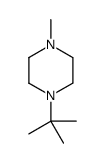 CAS#:10125-28-7
CAS#:10125-28-7 CAS#:142-64-3
CAS#:142-64-3 CAS#:65504-33-8
CAS#:65504-33-8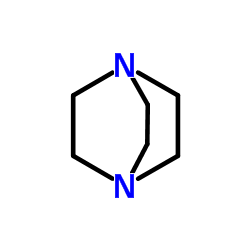 CAS#:280-57-9
CAS#:280-57-9 CAS#:106-59-2
CAS#:106-59-2